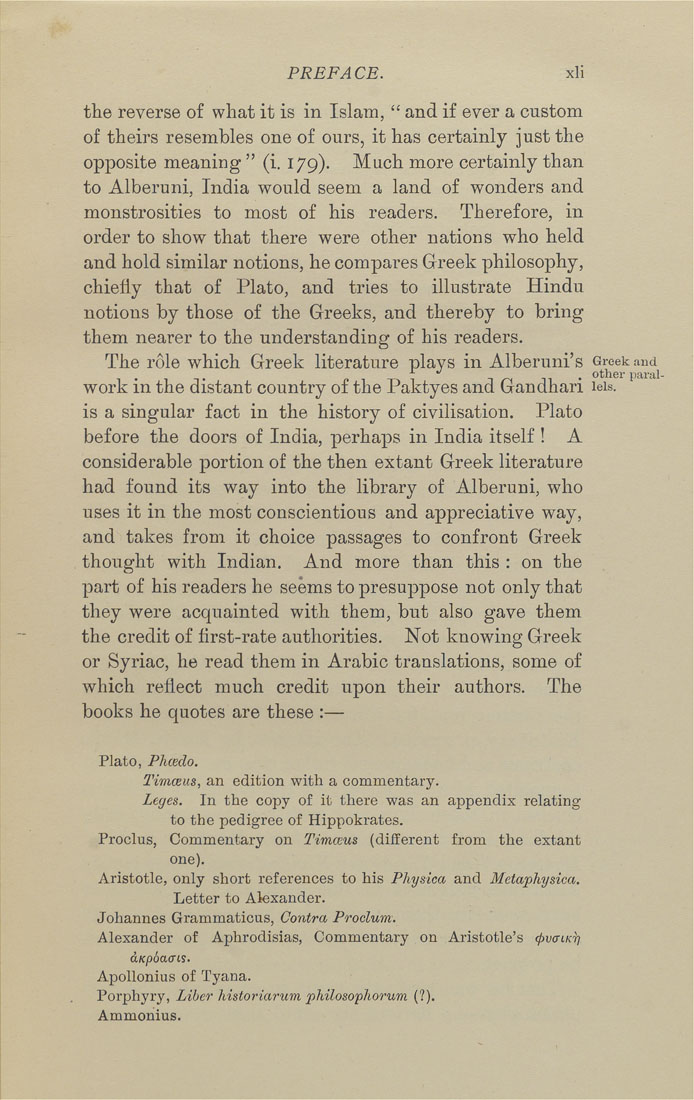Bīrūnī, Muḥammad ibn Aḥmad, Alberuni's India (v. 1)
(London : Kegan Paul, Trench, Trübner & Co., 1910.)
|
||
|
|
|
|
| Page xli |

m^^^^^^^r PREFACE. xli the reverse of what it is in Islam, " and if ever a custom of theirs resembles one of ours, it has certainly just the opposite meaning " (i. 179). Much more certainly than to Alberuni, India would seem a land of wonders and monstrosities to most of his readers. Therefore, in order to show that there were other nations who held and hold similar notions, he compares Greek philosophy, chiefly that of Plato, and tries to illustrate Hindu notions by those of the Greeks, and thereby to bring them nearer to the understanding of his readers. The role which Greek literature plays in Alberuni's Greek and work in the distant country of the Paktyes and Gandhari leis. is a singular fact in the history of civilisation. Plato before the doors of India, perhaps in India itself ! A considerable portion of the then extant Greek literature had found its way into the library of Alberuni, who uses it in the most conscientious and appreciative way, and takes from it choice passages to confront Greek thought with Indian. And more than this : on the part of his readers he seems to presuppose not only that they were acquainted with them, but also gave them the credit of first-rate authorities. Not knowing Greek or Syriac, he read them in Arabic translations, some of which reflect much credit upon their authors. The books he quotes are these :— Plato, Pluedo. Timceus, an edition with a commentary. Leges. In the copy of it there was an appendix relating to the pedigree of Hippokrates. Proclus, Commentary on Timceus (different from the extant one). Aristotle, only short references to his Physica and Metaphysica. Letter to Alexander. Johannes Grammaticus, Contra Proclum. Alexander of Aphrodisias, Commentary on Aristotle's ^vffiKri uKpoacns. ApoUonius of Tyana. Porphyry, Liber historiarum philosophorum (?). Ammonius. |
| Page xli |







